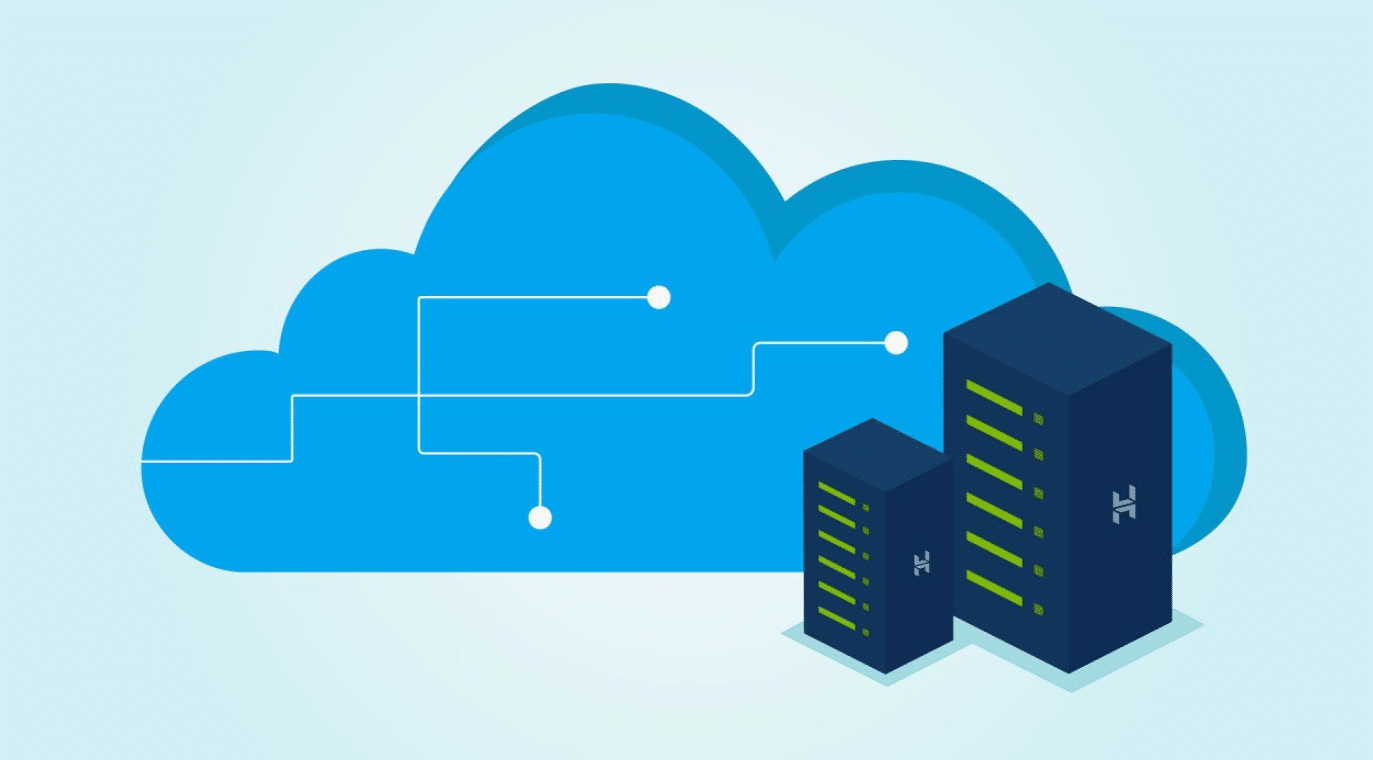Cloud Server Backup – In today’s digital era, data is at the core of every business operation. From customer information to financial records, businesses rely on data to function, grow, and innovate. Therefore, the protection of that data is paramount. One of the most reliable ways to ensure data protection and business continuity is through cloud server backup.
As companies increasingly migrate to the cloud for hosting applications and storing data, the need for robust backup strategies has never been more critical. Cloud server backup offers businesses a reliable, secure, and scalable way to protect their data against loss, corruption, or disasters.
In this article, we will explore the importance of cloud server backup, how it works, the benefits it offers, various backup strategies, and the best practices for implementing a successful backup strategy.

What Is Cloud Server Backup?
Cloud server backup is the process of storing copies of important data from cloud servers in a remote location, usually in data centers operated by cloud service providers. Instead of relying on traditional physical backups, cloud server backup uses the cloud to store data securely and makes it accessible from anywhere.
Cloud backup solutions often involve automated processes that back up data at regular intervals, ensuring that businesses have access to up-to-date copies of their critical data in case of a failure, cyberattack, or disaster.
There are two primary types of cloud backup:
-
Cloud-to-Cloud (C2C) Backup: This involves backing up data stored in one cloud environment to another cloud platform. It’s often used to protect data stored on SaaS applications like Google Workspace, Microsoft 365, or Salesforce.
-
Cloud-to-On-Premises Backup: This involves backing up cloud data to physical storage devices, often used in hybrid cloud setups, where a portion of the infrastructure is still maintained on-premise.
How Does Cloud Server Backup Work?
Cloud server backup works through a process of data replication from an on-premise or cloud-based system to a remote cloud storage facility. Here’s a breakdown of how it works:
-
Data Identification: The first step is identifying the data that needs to be backed up. This includes databases, files, applications, system configurations, and other essential data.
-
Compression and Encryption: To optimize space and ensure security, the data is often compressed and encrypted before it’s sent to the cloud. Compression reduces the file size, making backup more efficient, while encryption ensures that data remains secure in transit and at rest.
-
Data Transfer: The data is then transferred over the internet to the cloud storage facility. This transfer can be done in real time or according to a pre-set schedule (e.g., daily, weekly).
-
Storage: Once the data is transferred, it is stored securely in the cloud. Many cloud providers offer tiered storage solutions, which allow businesses to choose different levels of performance and cost for their backup data.
-
Backup Scheduling and Retention: Most cloud backup solutions allow users to set schedules for regular backups, as well as specify how long they want to retain backups (e.g., 30 days, 90 days, etc.). Some solutions also allow for incremental backups, which only back up data that has changed since the last backup.
-
Data Restoration: In the event of data loss or corruption, businesses can easily restore their backup from the cloud, ensuring minimal downtime and disruption to operations.
Why Is Cloud Server Backup Important?
1. Data Protection and Disaster Recovery
The primary reason for implementing a cloud server backup solution is to protect against data loss. Whether caused by hardware failure, cyberattacks, accidental deletion, or natural disasters, cloud backups offer a secure and accessible copy of critical data.
Having cloud server backups ensures that businesses can recover quickly after an incident. With fast recovery times, operations can continue with minimal disruption, helping to ensure business continuity.
-
Ransomware Protection: Cloud backups are a crucial defense against ransomware attacks. In the event of a breach, businesses can restore clean data, avoiding paying ransom or dealing with prolonged downtime.
2. Cost-Effective Solution
Traditional backup solutions often involve purchasing and maintaining expensive hardware and storage devices. With cloud server backup, businesses can avoid these upfront capital expenditures by paying only for the storage they use. This pay-as-you-go model allows organizations to scale backup solutions as their needs grow without the burden of hardware management.
-
No Maintenance Costs: The cloud provider manages the infrastructure, ensuring there are no maintenance costs related to physical backup hardware.
-
Elastic Scalability: Cloud backup services can scale up or down based on the amount of data needing protection, offering flexibility and cost savings.
3. Easy Accessibility and Remote Backup
Unlike physical backups that require on-site storage, cloud backups offer remote access from any location with internet connectivity. This is particularly beneficial for businesses with remote or distributed teams. Employees can access backup data from anywhere in the world, making it easier to restore files in the event of a disaster.
-
Global Access: Since data is stored in the cloud, authorized personnel can access backup data from anywhere.
-
Geographic Redundancy: Cloud service providers typically store backups across multiple geographic locations, which provides added protection in case of localized disasters or hardware failures.
4. Automated Backups and Reduced Human Error
Cloud server backup solutions typically feature automation capabilities, allowing businesses to set up automatic, scheduled backups. Automation minimizes the risk of human error, ensuring that backups are completed consistently without manual intervention.
-
Backup Schedules: Set daily, weekly, or monthly backup intervals based on the needs of the business.
-
Alert Notifications: Receive automatic alerts if a backup fails or encounters issues, allowing quick resolutions.
Key Benefits of Cloud Server Backup
1. Scalability
One of the key advantages of cloud server backup is scalability. As your business grows and generates more data, your backup needs will also increase. Cloud backup solutions allow businesses to scale up their backup capacity quickly and efficiently, without the need for additional infrastructure or hardware.
2. Security
Cloud backup solutions prioritize security to ensure that sensitive data remains protected from unauthorized access. Security features include encryption, multi-factor authentication (MFA), and access control mechanisms, ensuring that only authorized users can restore or access backup data.
-
End-to-End Encryption: Data is encrypted during transfer and while at rest in the cloud, offering strong protection from cyber threats.
-
Compliance: Cloud backup providers often comply with various security and privacy regulations, including GDPR, HIPAA, and SOC 2, making them suitable for industries with strict compliance requirements.
3. Minimized Downtime
In case of data loss, having a cloud server backup in place ensures that your business can recover quickly and with minimal downtime. Cloud-based backups reduce recovery times, ensuring that you can continue operations with minimal interruption.
-
Fast Data Recovery: Most cloud providers offer tools for quick and easy recovery, enabling businesses to get back to normal operations rapidly.
-
High Availability: With the cloud’s redundancy and failover capabilities, your data is always accessible, even in the event of hardware failure.
4. Compliance and Legal Protection
Many industries require businesses to maintain backup copies of their data to comply with regulatory standards. Cloud backups help businesses meet compliance requirements related to data retention and protection, offering a solution for industries such as finance, healthcare, and government.
-
Audit Trails: Cloud backup providers often offer features that maintain detailed logs of backup activities, which can be valuable for audits and regulatory compliance.
-
Long-Term Data Retention: Businesses can retain backups for extended periods, ensuring that they meet industry standards for data retention.
Best Practices for Cloud Server Backup
1. Regular Testing of Backups
Simply having backups isn’t enough—businesses must regularly test the integrity and reliability of their backups. By performing periodic restore tests, businesses can ensure that their backup data is intact and accessible when needed.
-
Test Restores: Conduct regular tests to verify that backup data can be restored quickly and correctly.
-
Monitoring: Implement monitoring systems that alert administrators to backup failures or issues.
2. Use Multi-Layered Backup Strategies
For enhanced protection, businesses should consider employing multi-layered backup strategies. This involves using both cloud and on-premise backups, or having multiple cloud backup providers, to diversify risk and ensure redundancy.
-
3-2-1 Backup Rule: Keep three copies of data, two of which are on different media (e.g., cloud and on-premise), and one copy stored off-site for added protection.
-
Hybrid Backups: Combine cloud and local backups for a more comprehensive data protection plan.
3. Automate Backup Schedules
Automating backups ensures they are performed consistently and without human error. Schedule backups to run at off-peak times to minimize any performance impact on systems during business hours.
-
Set Incremental Backups: Only back up data that has changed since the last backup, reducing the amount of data transferred and improving efficiency.
-
Set Backup Retention Policies: Retain backups for the required duration, based on regulatory or business needs.
4. Encrypt Backup Data
Data protection is paramount, so always ensure that backup data is encrypted, both in transit and at rest. Encryption prevents unauthorized access to sensitive business information.
-
End-to-End Encryption: Ensure that all backup data is encrypted using strong encryption standards like AES-256.
Conclusion
Cloud server backup is a crucial component of any business’s data protection and disaster recovery plan. By adopting cloud backup solutions, businesses can ensure their data is protected, easily recoverable, and accessible from anywhere. The benefits of cost-efficiency, scalability, security, and minimal downtime make cloud server backups an attractive option for organizations of all sizes.
Whether you’re protecting critical business data or complying with industry regulations, cloud backups offer an easy, secure, and reliable solution to safeguard your digital assets. By implementing a well-thought-out cloud backup strategy and following best practices, businesses can stay ahead of potential risks, ensuring operational continuity in an increasingly data-driven world.
